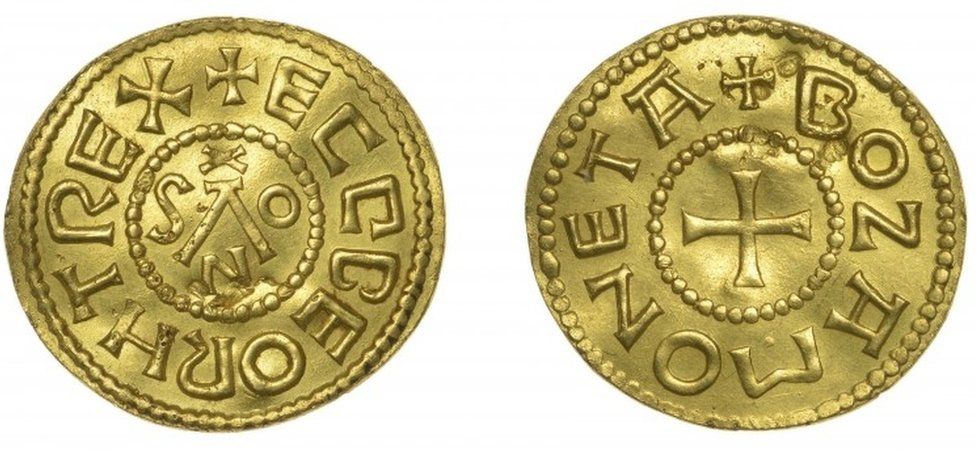World History
Related: About this forumRare Anglo-Saxon gold coin found in Wiltshire valued at $265,040.00
An extremely rare gold Anglo-Saxon coin has been discovered in a field in Wiltshire which experts say could fetch up to £200,000 at auction. Weighing less than 5 grams, the Gold Penny, or Mancus of 30 Pence, was struck during the time of Ecgberht, King of the West Saxons between 802 and 839.
Thought to be the only late Anglo-Saxon gold coin in private hands, it is expected to fetch between £150,000 and £200,000 at auction on 8 September. Auctioneer Peter Preston-Morley, from London-based Dix Noonan Webb, said "Gold coins of this monarch were completely unknown until this one was found," he said. The coin was analysed in June 2021 and found to be made of "high-purity gold".
Struck at a West Saxon mint, possibly in Southampton or Winchester, the coin bears the King's title 'Ecgbeorht Rex' around a monogram of the word Saxon. Mr Preston-Morley said only eight other known gold coins were struck in England between 630 and 1257, seven of which are now held at the British museum.
It is believed orders for coins to be struck were only given on special occasions or religious events, and the coins were produced for ceremonial or high-status payments. "They would have been extremely valuable coins," he said. "A single gold coin would have bought the equivalent of 360 loaves of wheat bread."
Mr Preston-Morley added it had not been possible to date the coin to a more specific period due to limited records from Ecgberht's reign .
https://www.bbc.com/news/uk-england-wiltshire-58028670

bucolic_frolic
(53,597 posts)and kept out of sight just like today.
eppur_se_muova
(40,688 posts)That's what happens when you're not adequately informed about the current market. ![]()
(I know, I know -- they converted from pounds sterling and copied whatever their computer/calculator gave them, to the last decimal ... )
Karadeniz
(24,716 posts)left. Also, does moneta mean money? I'll have to look up the ancestry of our word.
Back... Juno Moneta was the name given to Juno in her temple in the Roman forum...from moneo/monere, to warn, as in admonish... Her job was to warn Romans of danger. Her temple became the location of their mint, another monere word. The mint ran...curro, currere... all day and night, so currency resulted from all that running. Also, ergo these financial words are usually feminine in gender due to Juno.